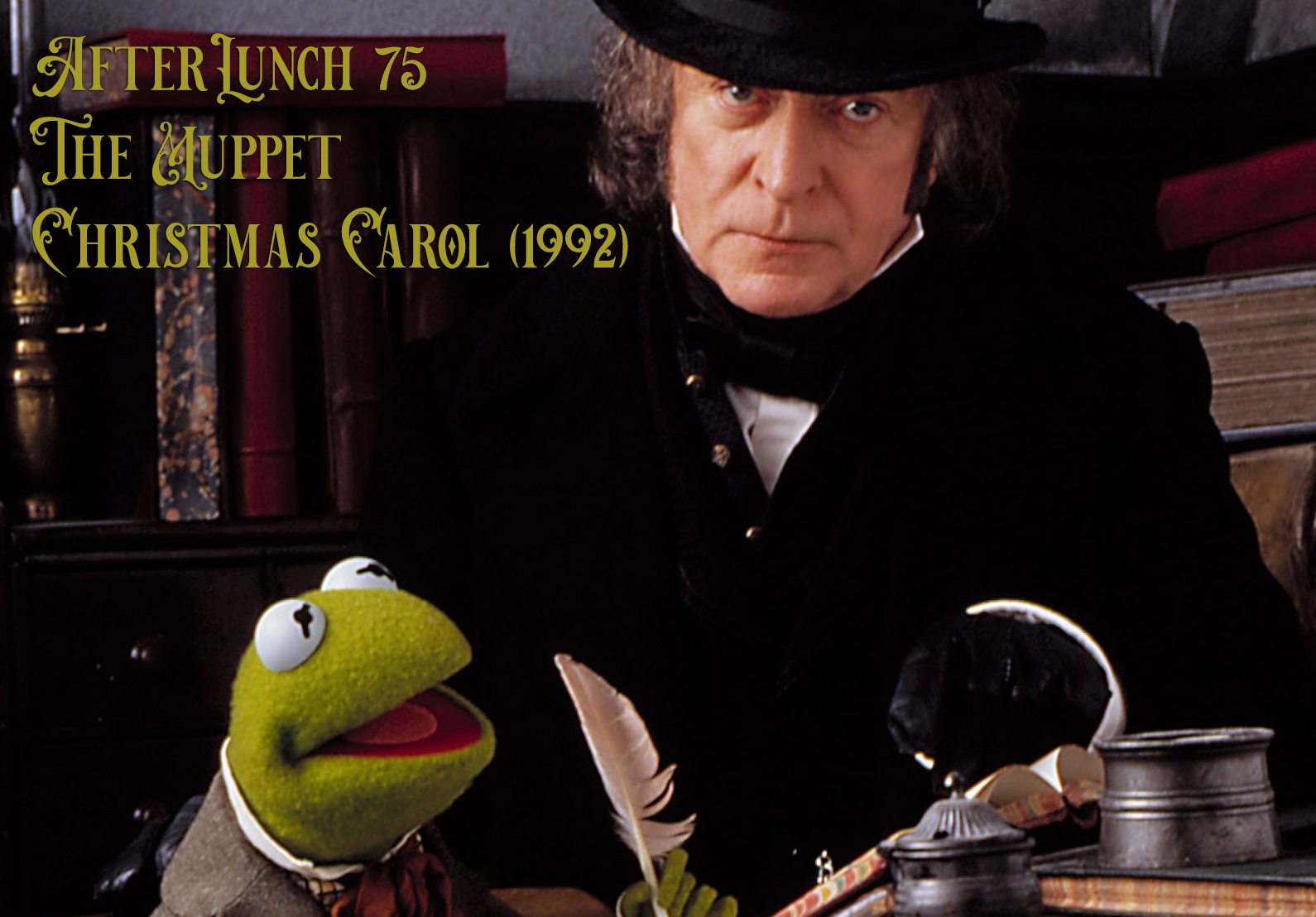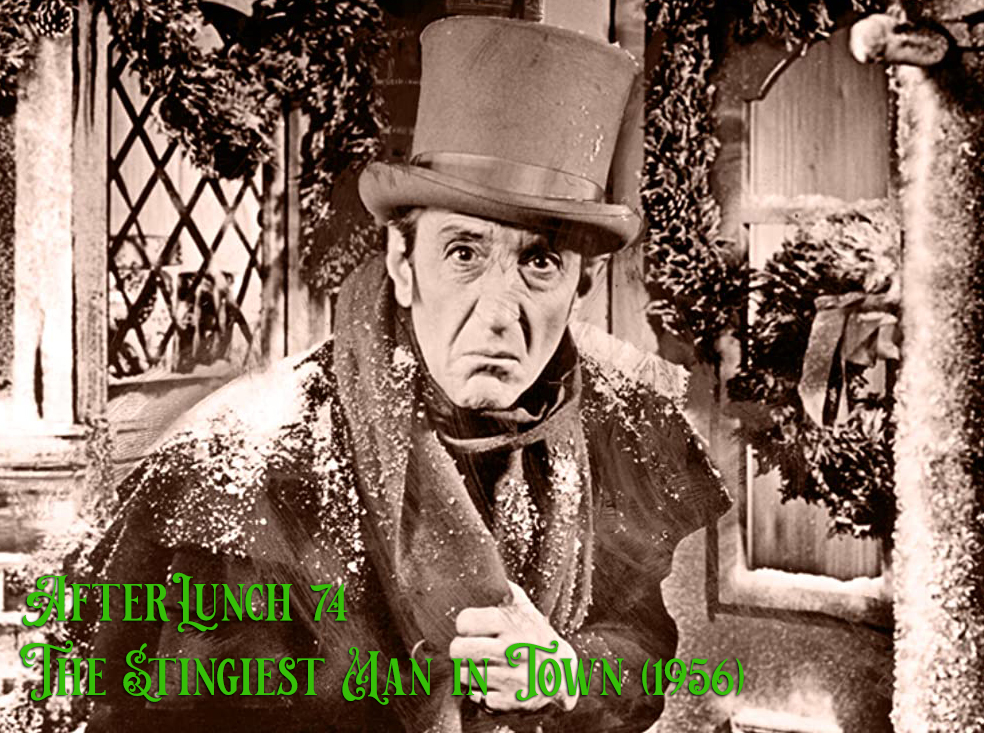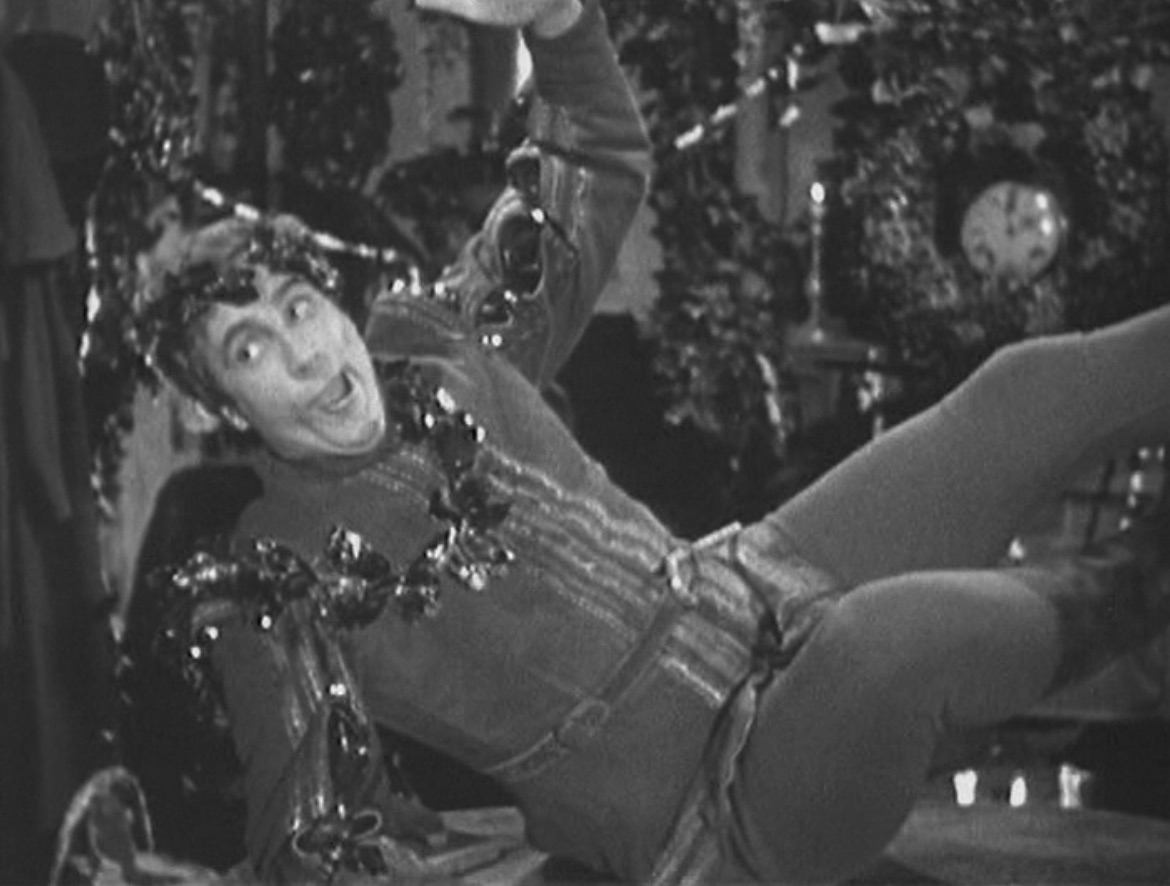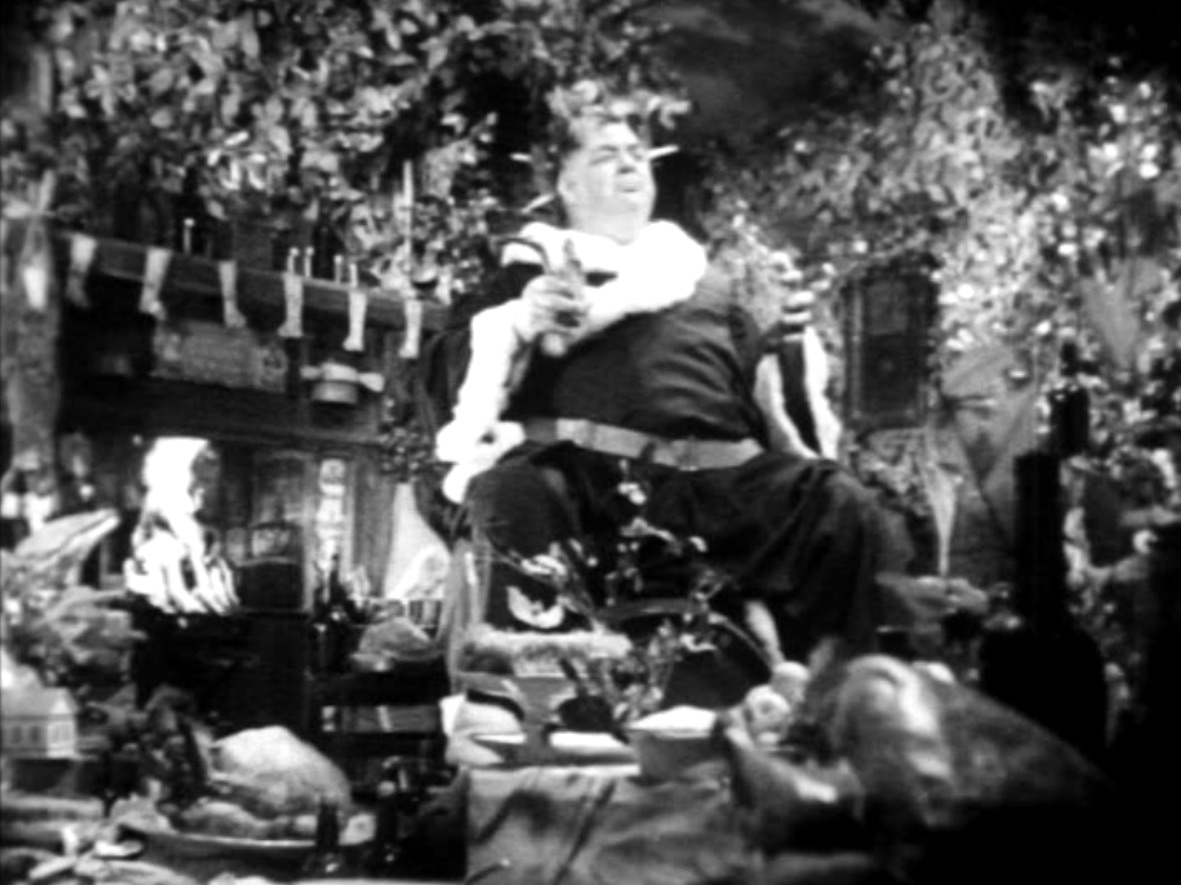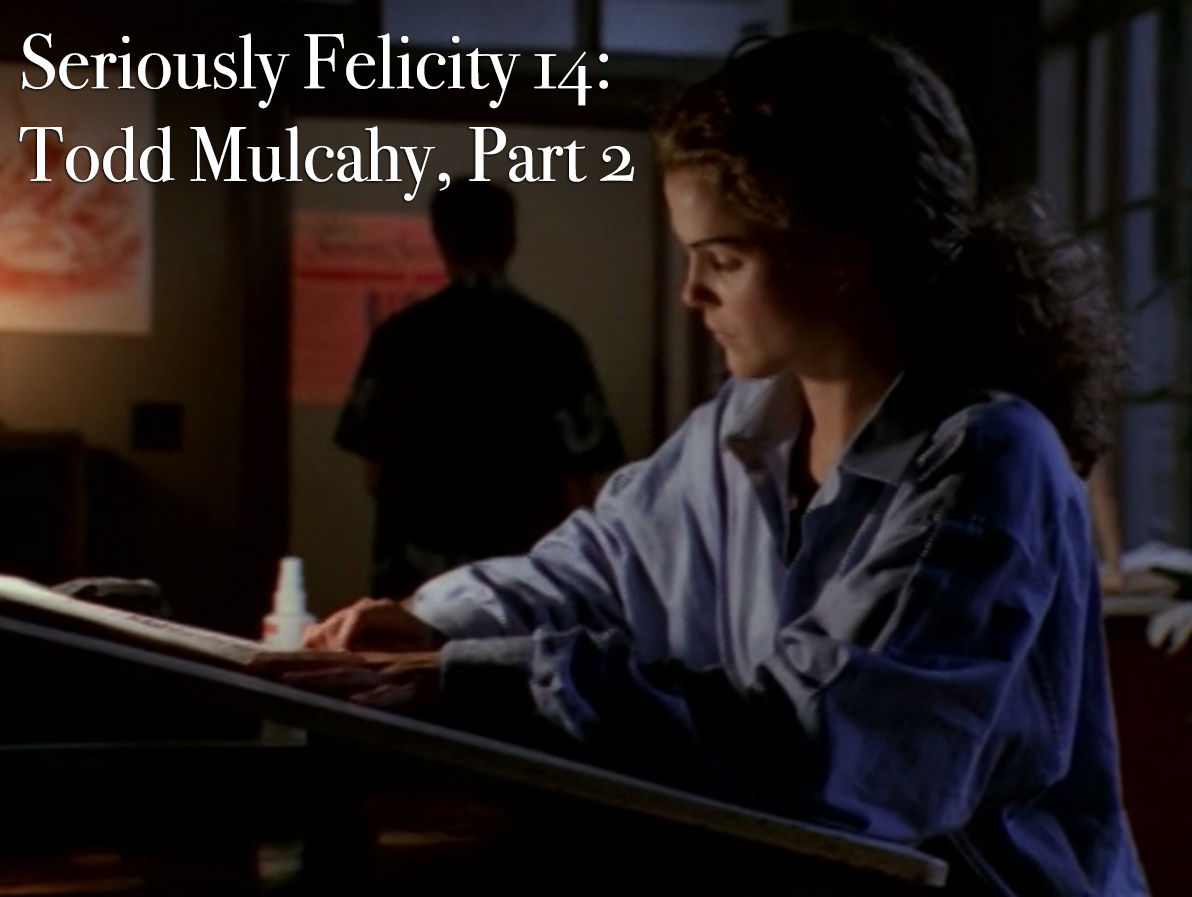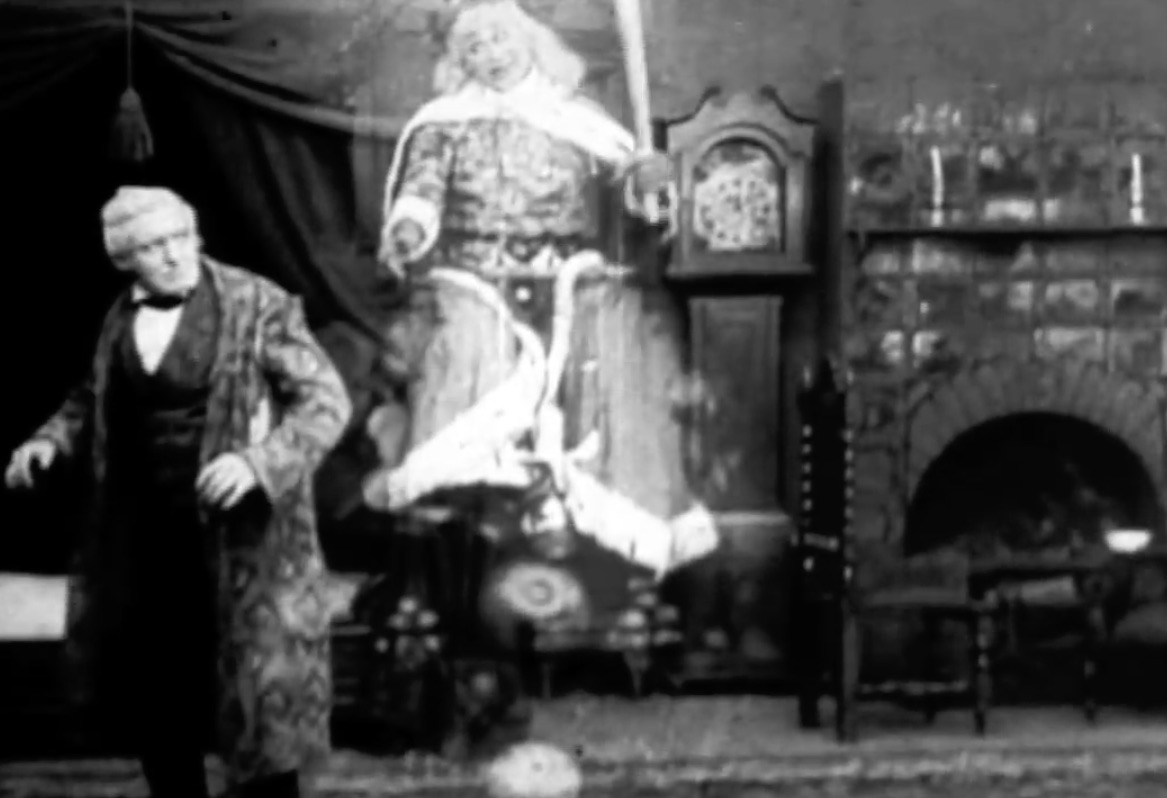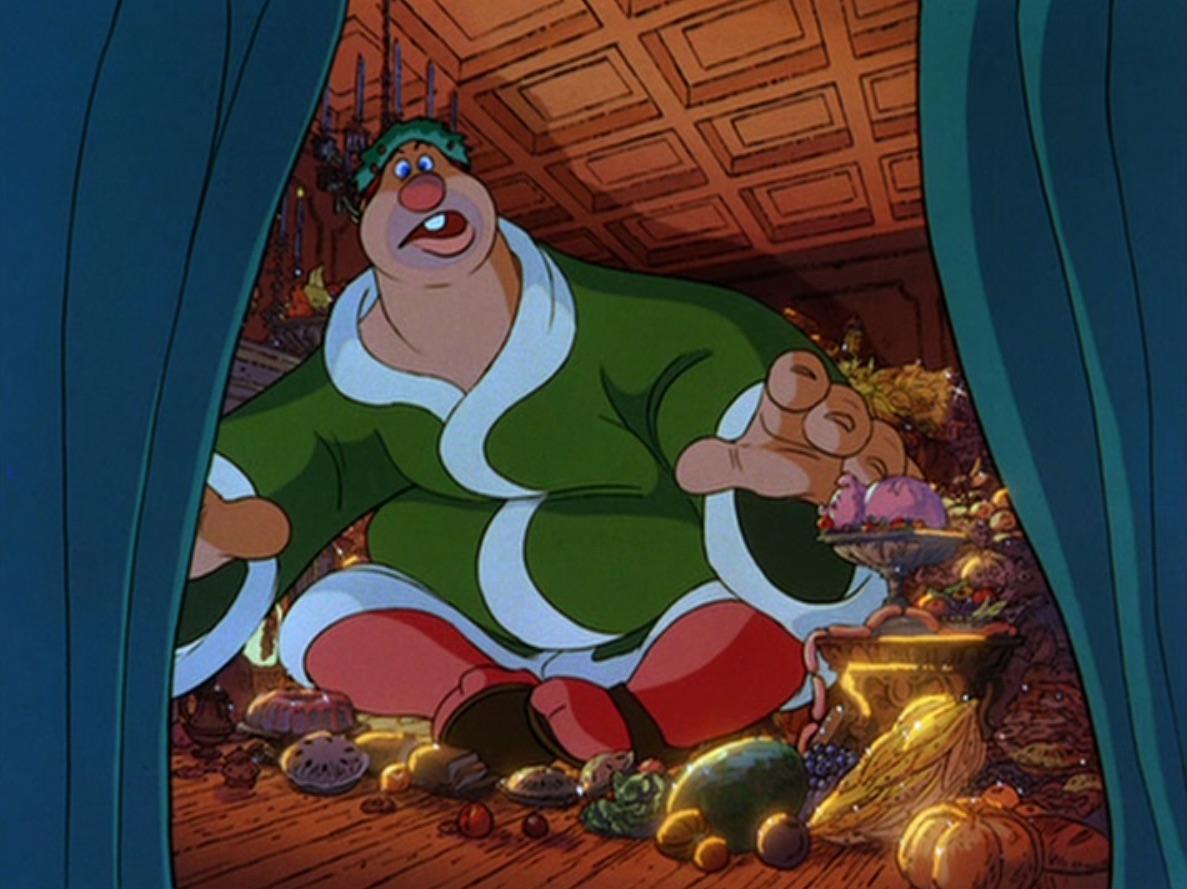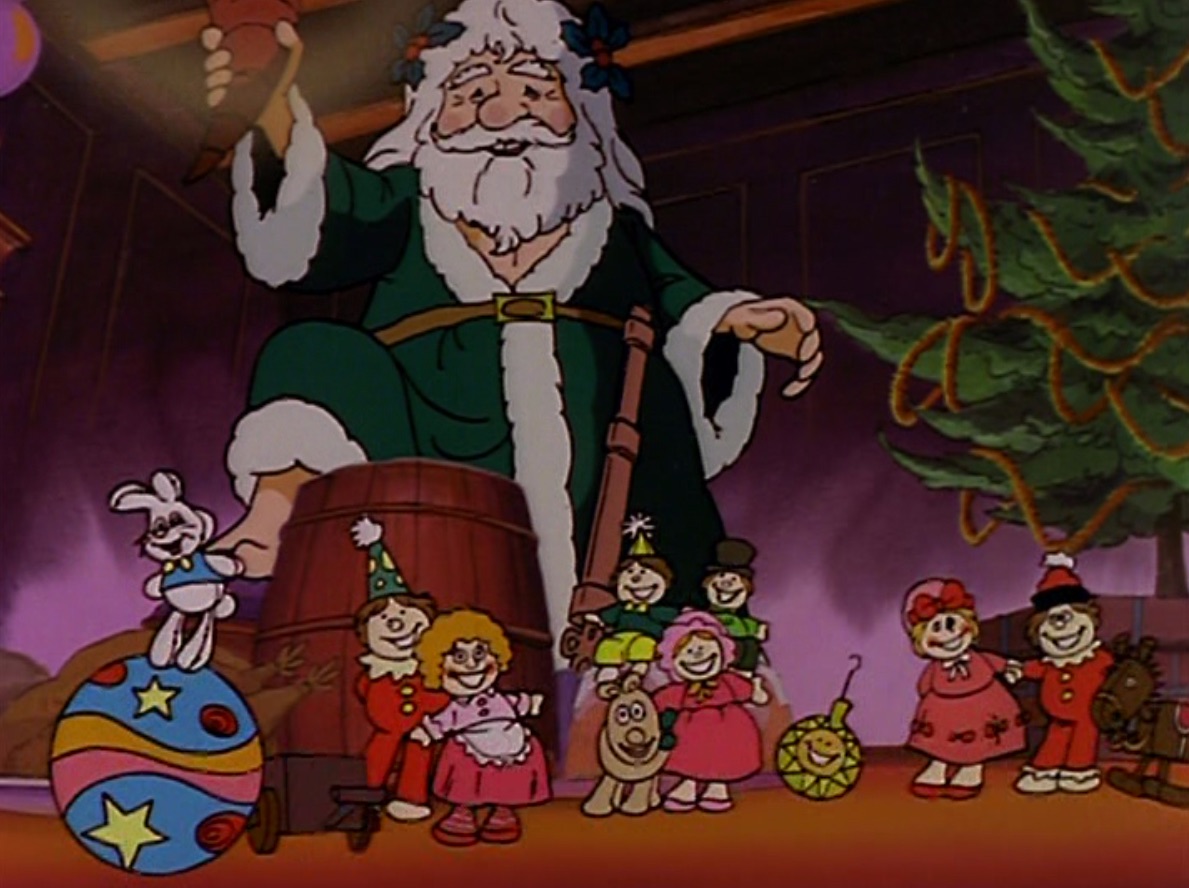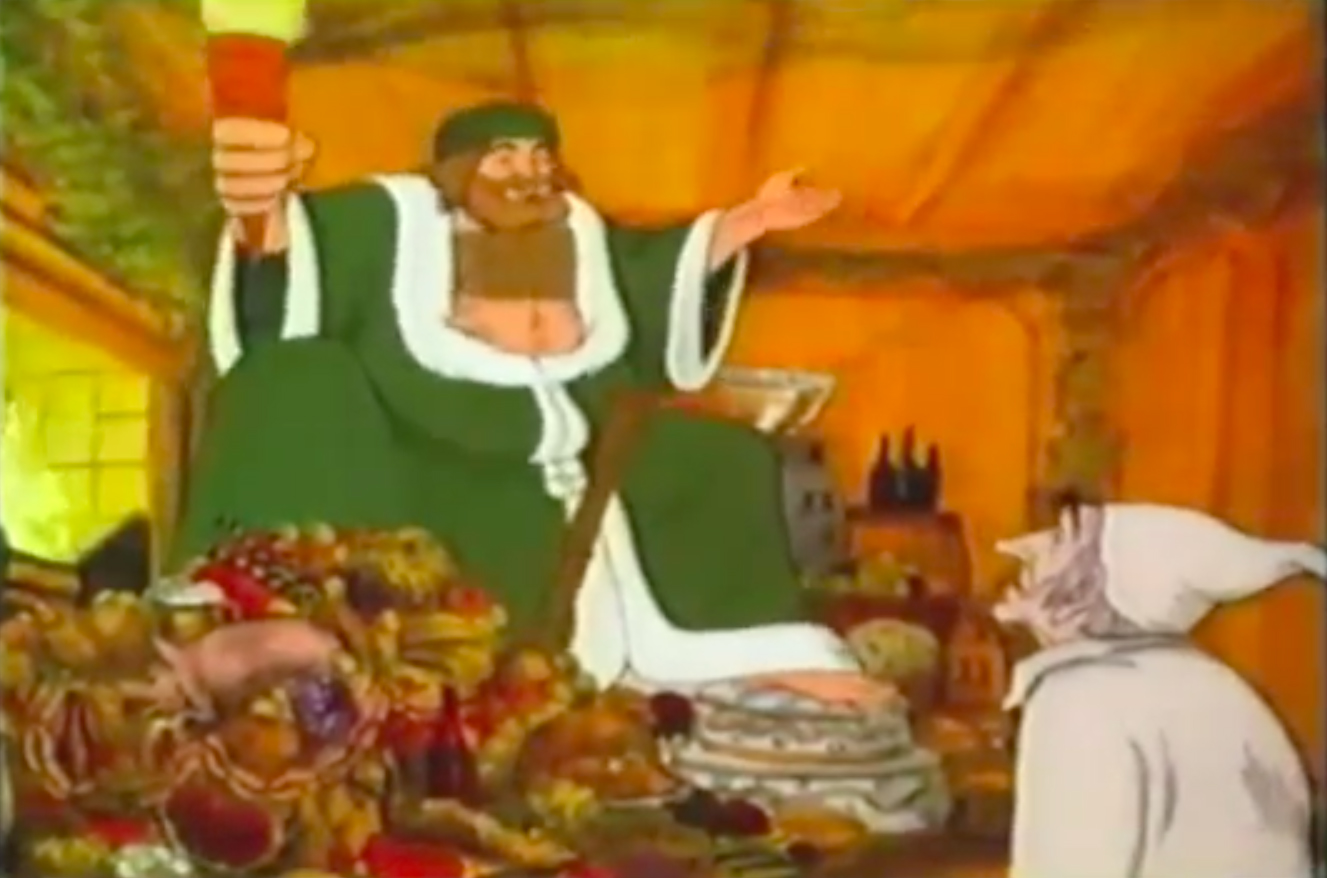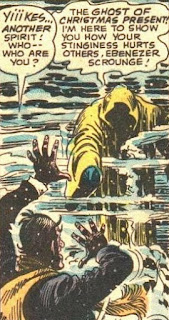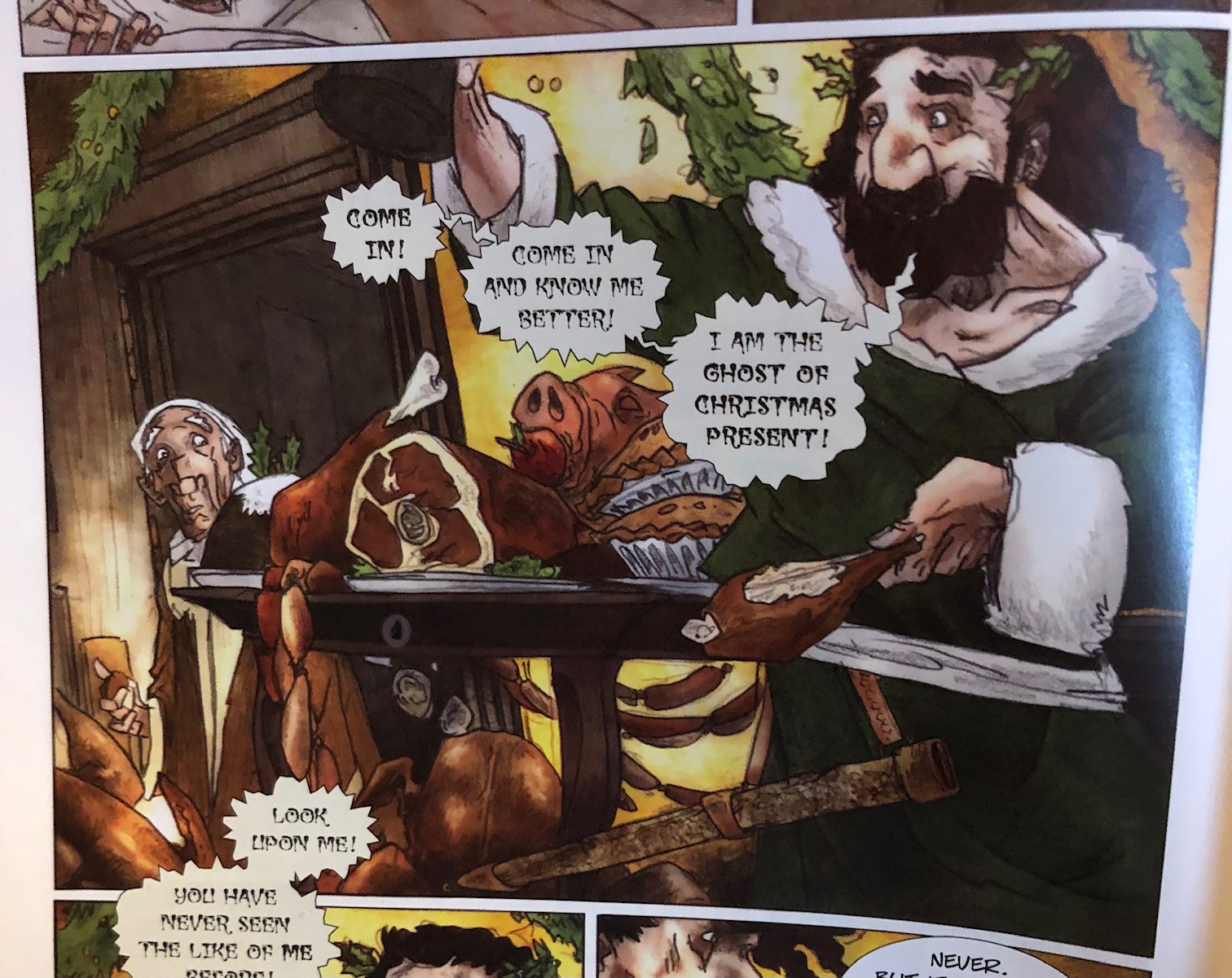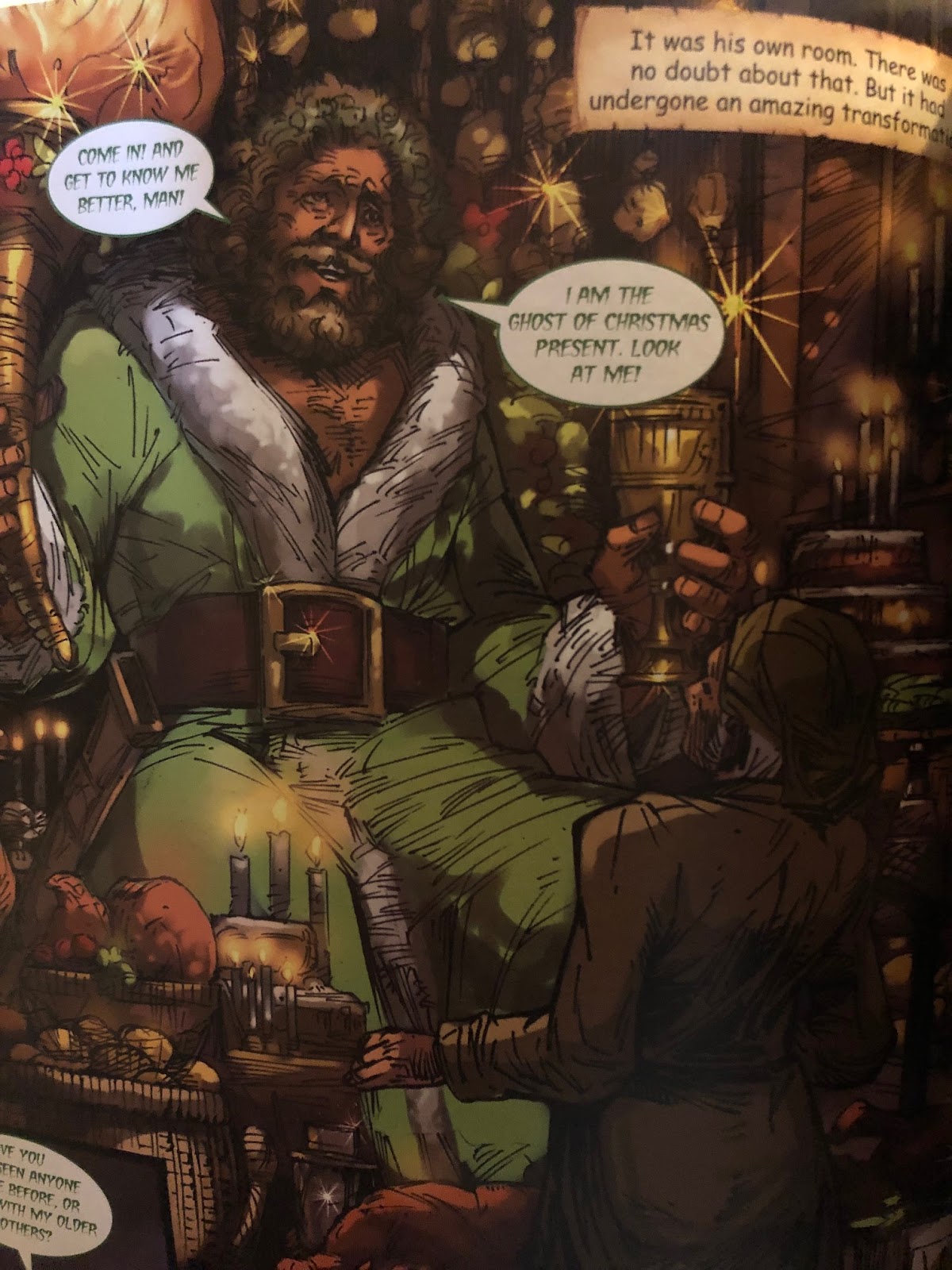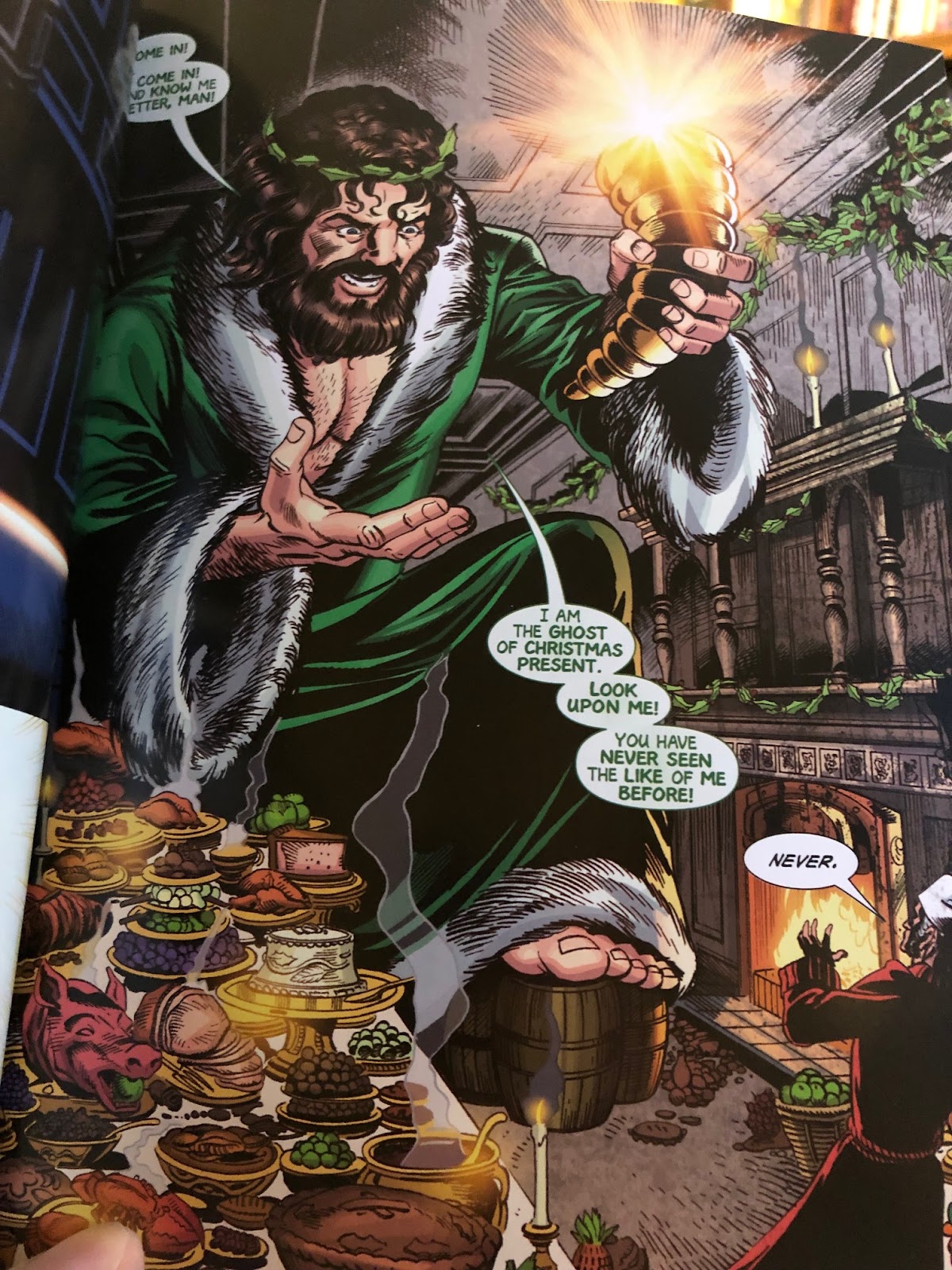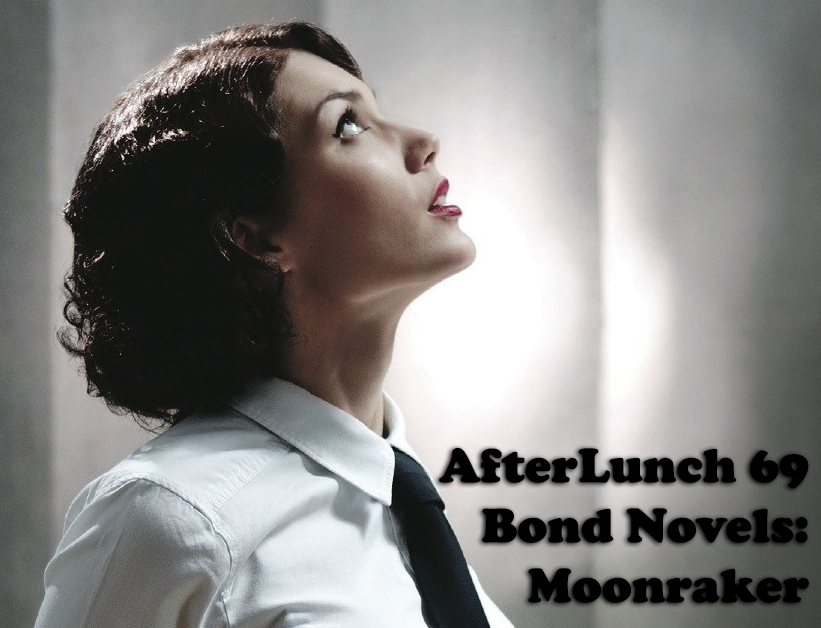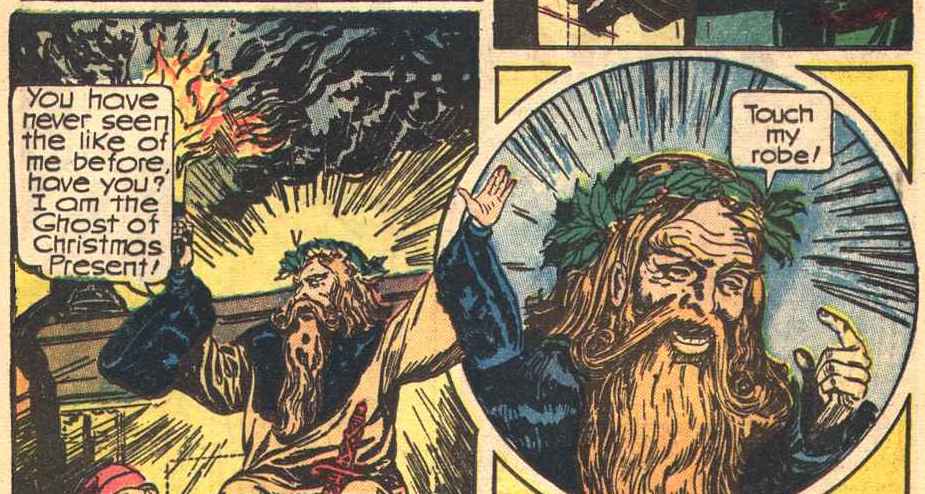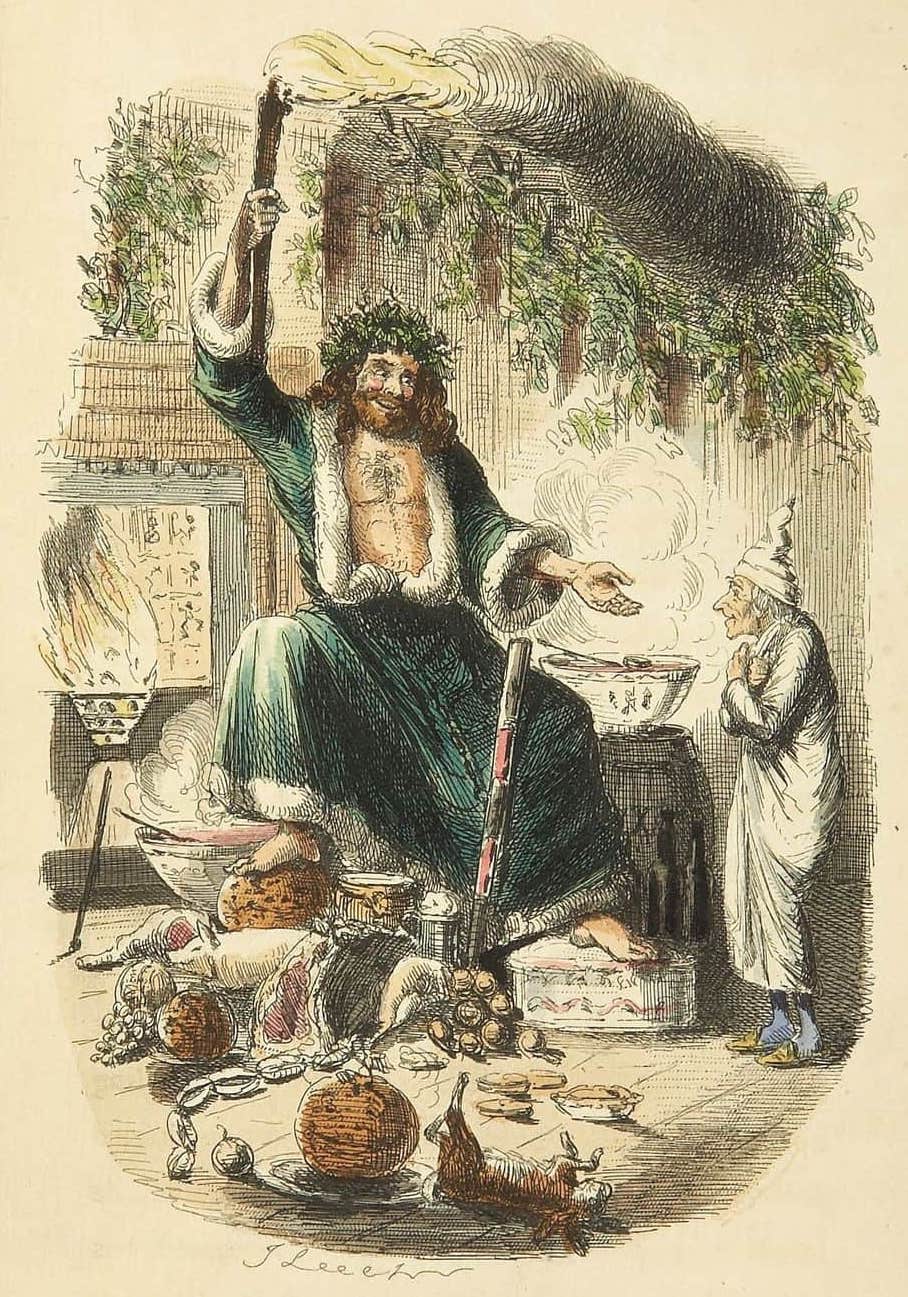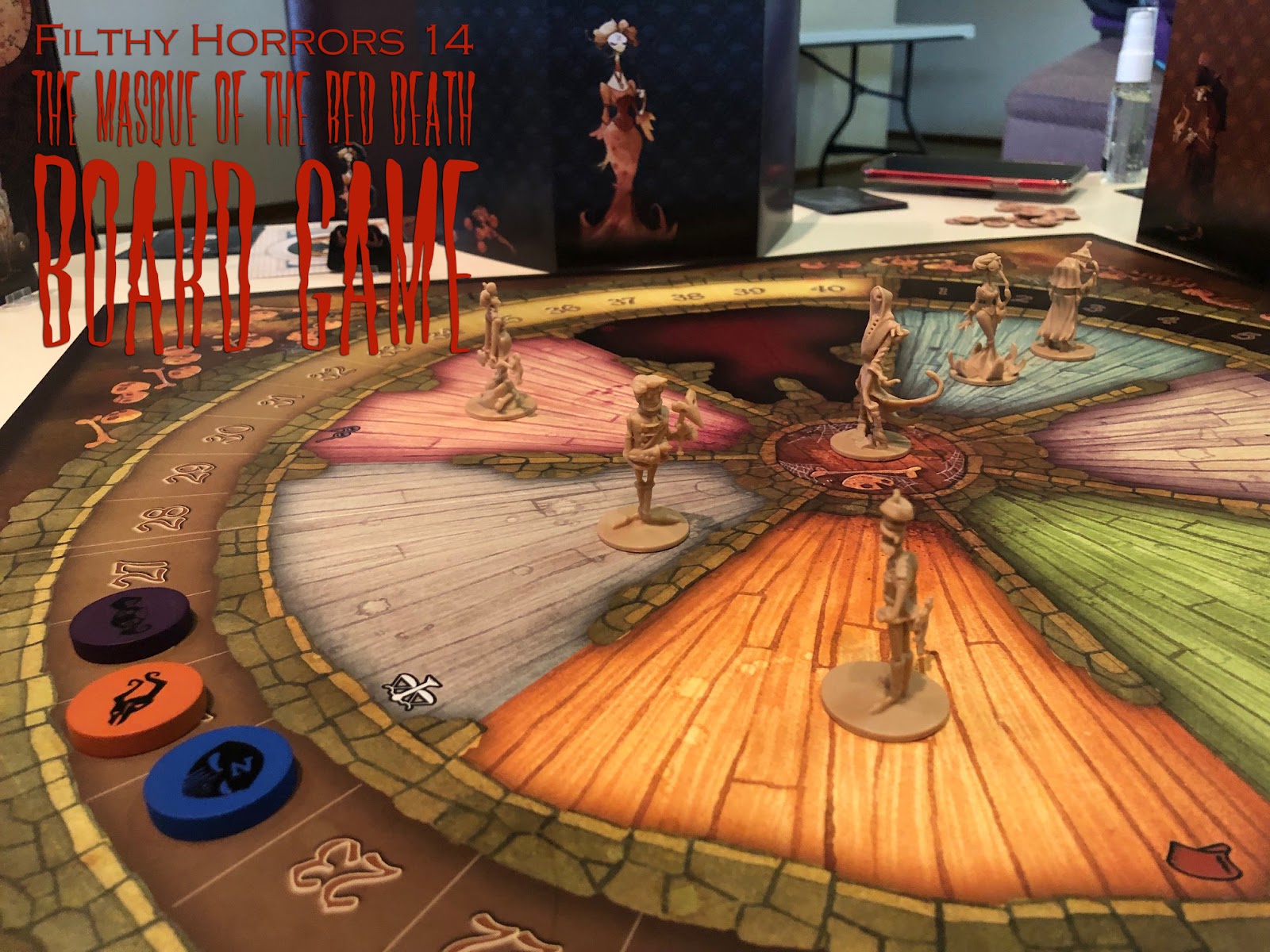Friday, December 31, 2021
AfterLunch | Last Christmas (2019)
Wednesday, December 29, 2021
AfterLunch | After Dinner Lounge – Podcast Poison
Monday, December 27, 2021
AfterLunch | After Dinner Lounge – CHRISTMAS!
Saturday, December 25, 2021
AfterLunch | Scrooged (1988)
Friday, December 24, 2021
AfterLunch | Mickey's Christmas Carol (1983)
Thursday, December 23, 2021
Hellbent for Letterbox | The Harder They Fall (2021)
AfterLunch | The Muppet Christmas Carol (1992)
Wednesday, December 22, 2021
AfterLunch | The Stingiest Man in Town (1956)
Tuesday, December 21, 2021
AfterLunch | A Christmas Carol (1984)
Monday, December 20, 2021
“Come In! And Know Me Better, Man!" | Fredric March (1954)
AfterLunch | Christmas Ghosts (And One Carol in Particular)
Sunday, December 19, 2021
“Come In! And Know Me Better, Man!" | Alastair Sim (1951)
Saturday, December 18, 2021
“Come In! And Know Me Better, Man!" | Reginald Owen (1938)
Friday, December 17, 2021
“Come In! And Know Me Better, Man!" | Seymour Hicks (1935)
Seriously Felicity | Todd Mulcahy, Part 2
Thursday, December 16, 2021
“Come In! And Know Me Better, Man!" | Mark McDermott (1910)
Wednesday, December 15, 2021
“Come In! And Know Me Better, Man!" | Jim Carrey (2009)
AfterLunch | Bond Novels – Diamonds Are Forever
Tuesday, December 14, 2021
“Come In! And Know Me Better, Man!" | Scrooge McDuck (1983)
Mickey's Christmas Carol opens this scene with Scrooge in bed, still distraught over reliving his break-up with Isabelle. I suspect that's as close as we'll get to his acknowledgment to the Ghost of Christmas Present that he's still learning from the previous Spirit, but it's enough for now.
This version is one of those that had Marley announce that all three Spirits would visit in one evening, so Scrooge's little bedside clock chimes Two and not One before the next Ghost arrives. Scrooge isn't nervously anticipating the new Ghost; he's still beating himself up about Isabelle when a light comes on through his bedcurtains and he hears, "Fee! Fi! Fo! Fum!"
He peeks through the curtains and sees as lavishly decorated a room as we've had so far. This version has Scrooge living in pretty much just one room, so Scrooge doesn't even have to get out of bed to see what the Ghost has done.
Since we're dealing with a giant ghost, Disney has cast Willie the Giant from the "Mickey and the Beanstalk" segment of Fun and Fancy Free (1947). Willie's kind of a dumb character, which is funny, but that does mean we're not going to get the joyful, ultra compassionate character I love so much from other versions. But because Willie was created as an antagonist for "Mickey and the Beanstalk," he's going to be a bit threatening to Scrooge and that may not be entirely inappropriate as we go through these next scenes.
Physically, Willie doesn't have either a beard or long hair, but he's dressed correctly in the green robe with white trim and the holly crown (still no icicles, though). His chest isn't particularly exposed, but then maybe that's best when this version isn't defined by his heart the way that others are. He's not wearing a shirt under the robe though, so that's something.
He also doesn't have bare feet (and won't really need them since we won't get Ignorance and Want in this version). Instead, he's wearing medieval hose like he did in "Beanstalk." He has no sheath or scabbard of any kind and doesn't even have the iconic cornucopia-shaped torch. He'll find another light source when they get outside, which will be funny, but I still miss that torch. Like I said, though, the room is packed with food and the Spirit is sitting on a literal throne that's covered in and surrounded by it.
Scrooge is initially terrified of the Ghost, but after Willie declares that Scrooge is too distasteful and miserly to be appetizing to even a man-eating giant, Scrooge becomes more like his old self. Willie refers to the much more appealing food around them and Scrooge is greedily interested (unlike his earlier reaction to Donald's description of Christmas dinner).
In lieu of Willie's actually being an exemplar of love and generosity himself, Disney has Scrooge ask where all the food came from, which prompts Willie to explain that it's "from the heart" and to give a speech about the generosity that Scrooge has "long denied your fellow man." That's what I mean about Willie's antagonistic background being a benefit. When he confronts Scrooge about his failings, it carries weight that little Jiminy Cricket - as fussy as he can be - could never bring.
Scrooge is still resistant though. He asks when anyone has ever been generous to him, clearly forgetting about the vision of Fezziwig he just experienced. But then again, the Fezziwig scene was really all about Isabelle for Scrooge.
Willie's first response to Scrooge's accusation is that "you've never given them reason" to be generous. That always makes me a little nervous, because I always forget what he says next. I don't like the implication that generosity is something that should be earned. Clearly people have been generous to Scrooge. Just look at Donald's consistent, annual invitation to Christmas dinner. That's a much stronger argument and happily it's where Willie is going next.
He tells Scrooge that there are people who care about him, but Scrooge is incredulous. By this time, Willie has already stuffed Scrooge in his giant pocket, so he lifts the roof off of Scrooge's house so that they can both leave and see what Willie's talking about.
This Scrooge is a tough nut to crack, so it works symbolically that the Spirit doesn't even ask him to take the minor action of touching the Spirit's robe. Instead, Scrooge is forcibly brought along with no choice in the matter.
Monday, December 13, 2021
“Come In! And Know Me Better, Man!" | Walter Matthau (1978)
"Listen to the song of the Christmas Spirit,Can't you hear it? Can't you hear it?Listen to the song of the Christmas Spirit,Ringing in the air."
"Tinkling laughs of girls and boysMingle with the jingle of tinkling toys.Words of hope and happy timesSung to the music that chimes."
AfterLunch | A Marvelous Holiday Special
Sunday, December 12, 2021
“Come In! And Know Me Better, Man!" | Alastair Sim (1971)
Saturday, December 11, 2021
“Come In! And Know Me Better, Man!" | Teen Titans #13 (1968)
Friday, December 10, 2021
“Come In! And Know Me Better, Man!" | Graphic Classics, Volume 19: Christmas Classics
Thursday, December 09, 2021
“Come In! And Know Me Better, Man!" | Campfire’s A Christmas Carol (2010)
Wednesday, December 08, 2021
“Come In! And Know Me Better, Man!" | A Christmas Carol: The Graphic Novel (2008)
AfterLunch | Bond Novels – Moonraker
Tuesday, December 07, 2021
“Come In! And Know Me Better, Man!" | Marvel Classic Comics #36 (1978)
Like the Classics Illustrated version, Marvel's adaptation also wastes no panels on having Scrooge nervously anticipate his next visitor. As soon as the clock tolls one, Scrooge is awake and the Ghost is beckoning him into the next room.
It's not as lavishly decked out as the Classics Illustrated story. There's plenty of food scattered around, but the floor isn't exactly covered in it. It certainly doesn't mound to form the Ghost's seat, though I like that his throne is carved to represent food.
The Ghost is giant-sized. Just how much doesn't become clear until they hit the street later, but he's huge. He also has the cornucopia torch, represented as an enormous horn of plenty that the Ghost has to hold two-handed, with light pouring from it's large opening. That's not how I imagined it, but I'm probably influenced by movie adaptations (particularly the George C Scott one). This is a valid way to represent it and I like it.
Instead of a green robe with white fur, Marvel's Ghost has a red robe with white fur, probably to suggest Santa Claus. That likely also explains why the Ghost's long hair and beard are snowy white when Dickens specified that they were dark brown. The drawings are vague enough that it's hard to tell if he's bare-chested or wearing a shirt under his robe, but he is barefoot. The holly crown has no icicles and the sheath without a sword is also missing.
This version includes the line about Scrooge's learning a lesson the night before, which is nice to see because I've been worried about this Scrooge. He began the story almost maniacal, but seemed to settle down under the influence of Christmas Past. He's making progress and I hope he doesn't relapse.
The Ghost invites Scrooge to touch his robe, which Scrooge does, and the room immediately disappears.
Monday, December 06, 2021
“Come In! And Know Me Better, Man!" | Classics Illustrated #53 (1948)
AfterLunch | The Cure, Part 1
Sunday, December 05, 2021
“Come In! And Know Me Better, Man!" | Dickens
As I talk about Dickens' original version of the scene, I'm going to copy the entire text in bold italics and insert commentary in plain type. That'll help identify elements that we want to pay attention to in the adaptations.
Awaking in the middle of a prodigiously tough snore, and sitting up in bed to get his thoughts together, Scrooge had no occasion to be told that the bell was again upon the stroke of One. He felt that he was restored to consciousness in the right nick of time, for the especial purpose of holding a conference with the second messenger despatched to him through Jacob Marley’s intervention. But finding that he turned uncomfortably cold when he began to wonder which of his curtains this new spectre would draw back, he put them every one aside with his own hands; and lying down again, established a sharp look-out all round the bed. For he wished to challenge the Spirit on the moment of its appearance, and did not wish to be taken by surprise, and made nervous.
The bell is "again upon the stroke of One," because in the book, it's now 1:00 am on a second night. Since Marley showed up on Christmas Eve the Spirit of Christmas Past would have arrived at 1:00 am on December 25. That makes this 1:00 am on December 26. At least, that's what Marley's Ghost said would happen, but as we'll see at the end of the story, there's not really a point to following this too closely.
Dickens reminds us that the Spirits are being sent to Scrooge "though Jacob Marley's intervention." That's what Marley told Scrooge earlier, but it's a quick line of dialogue that no one ever remembers. Scrooge's getting this warning and second chance is Marley's doing.
I like that Scrooge tries to regain some control by pulling back his bed curtains so that he can see when the Spirit arrives. If he's going to be visited, he wants it to be on his terms as much as possible. Curious to see if adaptations show this.
Gentlemen of the free-and-easy sort, who plume themselves on being acquainted with a move or two, and being usually equal to the time-of-day, express the wide range of their capacity for adventure by observing that they are good for anything from pitch-and-toss to manslaughter; between which opposite extremes, no doubt, there lies a tolerably wide and comprehensive range of subjects. Without venturing for Scrooge quite as hardily as this, I don’t mind calling on you to believe that he was ready for a good broad field of strange appearances, and that nothing between a baby and rhinoceros would have astonished him very much.
According to Michael Patrick Hearn's The Annotated Christmas Carol, a "free-and-easy" was a kind of gathering place that offered smoking, drinking, singing, and gambling. So a "free-and-easy sort" was the kind of guy who would go there. To "plume yourself," is simply to "pride yourself" in something silly that you really have no control over, like a bird showing off its plumage.
Being "acquainted with a move or two" is just a fun way of saying that they're worldly and "equal to the time-of-day" just means that you're able to take things as they come. You're ready for whatever may happen.
Pitch-and-toss was a Victorian street gambling game that more or less involved tossing pennies at a target with the person closest collecting the loser's coins.
This is all to say that Scrooge was ready for anything and I love the line that "nothing between a baby and rhinoceros would have astonished him very much."
Now, being prepared for almost anything, he was not by any means prepared for nothing; and, consequently, when the Bell struck One, and no shape appeared, he was taken with a violent fit of trembling. Five minutes, ten minutes, a quarter of an hour went by, yet nothing came. All this time, he lay upon his bed, the very core and centre of a blaze of ruddy light, which streamed upon it when the clock proclaimed the hour; and which, being only light, was more alarming than a dozen ghosts, as he was powerless to make out what it meant, or would be at; and was sometimes apprehensive that he might be at that very moment an interesting case of spontaneous combustion, without having the consolation of knowing it. At last, however, he began to think—as you or I would have thought at first; for it is always the person not in the predicament who knows what ought to have been done in it, and would unquestionably have done it too—at last, I say, he began to think that the source and secret of this ghostly light might be in the adjoining room, from whence, on further tracing it, it seemed to shine. This idea taking full possession of his mind, he got up softly and shuffled in his slippers to the door.
I love that Dickens basically shames horror movie fans who ridicule characters for not behaving completely logically.
The moment Scrooge’s hand was on the lock, a strange voice called him by his name, and bade him enter. He obeyed.
It was his own room. There was no doubt about that. But it had undergone a surprising transformation. The walls and ceiling were so hung with living green, that it looked a perfect grove; from every part of which, bright gleaming berries glistened. The crisp leaves of holly, mistletoe, and ivy reflected back the light, as if so many little mirrors had been scattered there; and such a mighty blaze went roaring up the chimney, as that dull petrification of a hearth had never known in Scrooge’s time, or Marley’s, or for many and many a winter season gone. Heaped up on the floor, to form a kind of throne, were turkeys, geese, game, poultry, brawn, great joints of meat, sucking-pigs, long wreaths of sausages, mince-pies, plum-puddings, barrels of oysters, red-hot chestnuts, cherry-cheeked apples, juicy oranges, luscious pears, immense twelfth-cakes, and seething bowls of punch, that made the chamber dim with their delicious steam. In easy state upon this couch, there sat a jolly Giant, glorious to see; who bore a glowing torch, in shape not unlike Plenty’s horn, and held it up, high up, to shed its light on Scrooge, as he came peeping round the door.
Most adaptations do their best to convey this huge redecoration of Scrooge's sitting room, but it'll be interesting to see if any don't. Same with the cornucopia torch. I'm thinking of a couple of adaptations that include it, but I don't know how many. I don't know if I ever made the connection before that this Ghost's torch replicates the light given off by the flame-like Christmas Past. And will be contrasted with the darkness of the Ghost of Christmas Yet to Come. The past and present both illuminate, but the future is hidden and unknowable.
"Brawn" is apparently some kind of pork product and "twelfth-cakes" are large pastries made with honey, ginger, and pepper, then frosted and decorated and served on Twelfth Night, the last official celebration of the Christmas season in England (in early January). There's a whole thing about baking a bean or coin into the cake and whoever finds it gets to be the king or queen of the feast. It reminds me of the Mardi Gras King Cakes with their plastic babies that serve a similar function.
“Come in!” exclaimed the Ghost. “Come in! and know me better, man!”
I love this line and its double-meaning. The Ghost welcomes Scrooge into the room, but he also welcomes him into a relationship with Christmas itself.
Scrooge entered timidly, and hung his head before this Spirit. He was not the dogged Scrooge he had been; and though the Spirit’s eyes were clear and kind, he did not like to meet them.
I had to look up "dogged," because I was associating it with "hang-dogged," which means dejected or shamed. I knew that didn't fit Scrooge here, because his lack of eye contact suggests that he is dejected and ashamed. "Dogged" by itself refers to someone who's persistent and tenacious like a hunting dog. That describes Scrooge's feistiness earlier in the story, but that's not him any more.
“I am the Ghost of Christmas Present,” said the Spirit. “Look upon me!”
Scrooge reverently did so. It was clothed in one simple green robe, or mantle, bordered with white fur. This garment hung so loosely on the figure, that its capacious breast was bare, as if disdaining to be warded or concealed by any artifice. Its feet, observable beneath the ample folds of the garment, were also bare; and on its head it wore no other covering than a holly wreath, set here and there with shining icicles. Its dark brown curls were long and free; free as its genial face, its sparkling eye, its open hand, its cheery voice, its unconstrained demeanour, and its joyful air. Girded round its middle was an antique scabbard; but no sword was in it, and the ancient sheath was eaten up with rust.
I've often wondered why the Spirit is shirtless and open-robed, showing off a lot of chest. According to Hearn, since the chest was the home of the heart, Victorians would have associated a large, bared chest with an overflowing of compassion. Let's see how many adaptations are willing to show off this Ghost's chest.
We'll also keep an eye out for the green robe with white fur, bare feet, long hair, the iconic holly wreath (and will it have icicles?), and the rusted, sword-less sheath. And of course, the Ghost's generally jolly and unselfish demeanor.
A note on the rusted sheath, because I like this: This Spirit's appearance obviously borrows a lot from Father Christmas, the formerly pagan, but now-Christian symbol of the winter holidays. The Ghost's giant size and cornucopia are both references to his pagan origins. Along with armor, the sword was often an element of Father Christmas pictures, symbolizing the conquering of pagan traditions. Dickens' ghost conquers not with a sword though, but with love and generosity.
“You have never seen the like of me before!” exclaimed the Spirit.
“Never,” Scrooge made answer to it.
Another double-meaning. Scrooge has never encountered the kind of generosity that the Spirit represents. Or if he has, he's ignored or misunderstood it.
“Have never walked forth with the younger members of my family; meaning (for I am very young) my elder brothers born in these later years?” pursued the Phantom.
Again, Scrooge has no relationship with Christmas.
“I don’t think I have,” said Scrooge. “I am afraid I have not. Have you had many brothers, Spirit?”
“More than eighteen hundred,” said the Ghost.
Eighteen hundred and forty-three, if the story takes place in the year it was published.
“A tremendous family to provide for!” muttered Scrooge.
The Ghost of Christmas Present rose.
According to Hearn, there was a deleted section here where the Ghost's rising revealed the claw-like feet of Ignorance and Want who appear later in the story. Scrooge asks about it and the Ghost compliments him for even caring that much, but the Ghost doesn't yet reveal who's under the robe. I kind of like the foreshadowing, but I understand why Dickens thought it better to keep that part a surprise for later.
“Spirit,” said Scrooge submissively, “conduct me where you will. I went forth last night on compulsion, and I learnt a lesson which is working now. To-night, if you have aught to teach me, let me profit by it.”
Scrooge acknowledges that he's taken the first steps toward change. Curious to see what versions still try to make him curmudgeonly at this point. We should be starting to see changes in him by now.
“Touch my robe!”
Christmas Past invited Scrooge to passively accept its touch on his heart as protection. Christmas Present needs Scrooge to be more active.
Scrooge did as he was told, and held it fast.
So here's what we're on the look out for this year:
- Does Scrooge pull his bed curtains back before the new Ghost arrives?
- How has Scrooge's room been redecorated? How lavish and generous is it? Is there a throne of food?
- The Ghost's appearance. Does it have the following?
- Giant size
- Cornucopia torch
- Green robe with white fur
- Broad, bare chest
- Bare feet
- Long, loose, dark brown hair
- Holly wreath hat with icicles
- Rusted, swordless sheath.
- Is Scrooge showing signs of changing by now?
- Does the Spirit invite Scrooge to touch his robe?
Saturday, December 04, 2021
The Christmas Carol Project | “Come In! And Know Me Better, Man!"
• Classics Illustrated #53 (1948)
• Marvel Classics Comics #36 (Marvel; 1978)
• A Christmas Carol: The Graphic Novel (Classical Comics; 2008)
• A Christmas Carol (Campfire; 2010)
• "A Christmas Carol" in Graphic Classics, Vol. 19: Christmas Classics (Eureka; 2010)
• Teen Titans #13 (DC; 1968)
• A Christmas Carol cartoon (1971) starring Alastair Sim
• The Stingiest Man in Town (1978) starring Walter Matthau
• Mickey’s Christmas Carol (1983) starring Scrooge McDuck
• A Christmas Carol (2009) starring Jim Carrey
• A Christmas Carol (1910) starring Marc McDermott
• Scrooge (1935) starring Seymour Hicks
• A Christmas Carol (1938) starring Reginald Owen
• Scrooge (1951) starring Alastair Sim
• "A Christmas Carol" episode of Shower of Stars (1954) starring Fredric March
• Scrooge (1970) starring Albert Finney
• A Christmas Carol (1984) starring George C. Scott
• The Muppet Christmas Carol (1992) starring Michael Caine
• A Christmas Carol (1999) starring Patrick Stewart
This year, we finally get to meet my favorite of the three spirits: the Ghost of Christmas Present.






